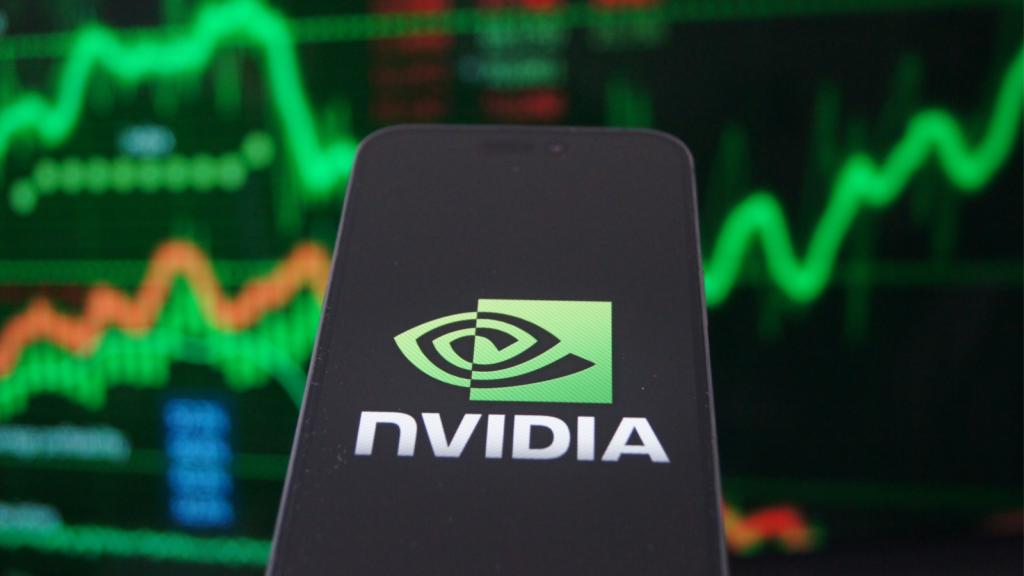Yellow Alert: Why You Should Hold Nvidia Stock but Not Buy It Now

There’s no denying that Nvidia (NASDAQ:NVDA) is favored among investors in 2023. That’s mainly because of the company’s prominent status as a manufacturer of processors for artificial intelligence applications. Yet, NVDA stock might not be a market darling for much longer. This doesn’t mean you have to dump your Nvidia shares, but just be aware of the issues that the company is facing in the U.S. and abroad.
I won’t try to argue that investors should avoid Nvidia because the company is overvalued. Sure, Nvidia recently had a GAAP trailing price-to-earnings (P/E) ratio of nearly 100x.
Yet, Nvidia’s valuation has been high throughout most of 2023, but NVDA stock kept marching higher. So, there’s nothing wrong with continuing to hold any share position you might already have. Don’t be too eager to add to your Nvidia share position today, as there are serious problems to consider.
China Challenges Could Weigh on NVDA Stock
It’s also worth mentioning that Nvidia has an earnings event later this month. Thus, risk-averse investors have a reason to wait instead of jumping into a hasty trade since earnings events can be highly unpredictable.
Furthermore, something is happening right now that involves a far-away market but could nonetheless have a significant impact on Nvidia’s bottom line. Specifically, the U.S. government’s restrictions on exports of AI chips to China could cost Nvidia more than $5 billion worth of sales to that country.
Reportedly, Nvidia already fulfilled its processor orders to China for this year. However, export controls may impact some AI chip orders to China in 2024.
Granted, Nvidia remains confident in its ability to ship its processors globally. “Given the strength of demand for our products worldwide, we do not anticipate that the additional restrictions will have a near-term meaningful impact on our financial results,” Nvidia assured.
Piper Sandler analyst Harsh Kumar didn’t seem too worried about the U.S.-to-China export restrictions. “Our assumption is that Nvidia will quickly redesign a chip to meet new standards with relatively immaterial disruptions to the current business outlook,” Kumar explained.
Nvidia’s Big Threat: Advanced Micro Devices
Nvidia has potential problems not only in China but also at home in the U.S. In particular, Nvidia faces fierce competition in the AI chip market from Advanced Micro Devices (NASDAQ:AMD).
While Nvidia has its powerful H100 AI chips, AMD has its competing MI300 series chips. Not long ago, CEO Lisa Su forecasted 2024 sales of over $2 billion for the MI300 chips. Additionally, Su observed that the MI300 chip will be AMD’s fastest product to achieve $1 billion in sales in the company’s history.
Analysts with TD Cowen declared, “Hitting this milestone is likely a key first step towards proving AMD is the clear second source to Nvidia in the AI accelerator market.” Thus, investors shouldn’t be overly confident in Nvidia’s continued dominance in this niche industry.
This doesn’t mean you need to panic-sell NVDA stock. However, Nvidia doesn’t monopolize the U.S. AI processor market. Su stated that AMD’s MI300 chips have earned commitments from “multiple, large hyperscale customers.” This signals that Nvidia will have to defend its market share against AMD vigorously.
A Strategy You Can Use With NVDA Stock
Nvidia is still the winner in the U.S. AI chip industry, but the threat from AMD can’t be ignored. Moreover, Nvidia’s AI chip sales to China may be blocked by U.S. regulations in 2024.
So, here’s a strategy to consider. You can hold whatever NVDA stock shares you already have and add some AMD stock to balance your position.
There’s no point in abandoning Nvidia altogether. You can be cautious now and hedge your bets but still position yourself for the potential growth of tech titans like Nvidia and AMD.
On the date of publication, David Moadel did not have (either directly or indirectly) any positions in the securities mentioned in this article. The opinions expressed in this article are those of the writer, subject to the InvestorPlace.com Publishing Guidelines.









